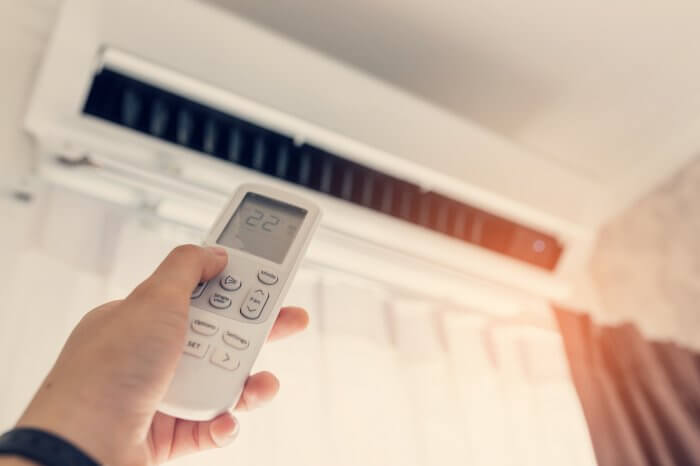
Winter is here and as temperatures begin to plummet around the country, worrying new research from Compare the Market reveals that a third of Australians will shun heating to beat soaring electricity prices.*
New research from the comparison service found 34.8% of Australians surveyed said they would use their heating less in a bid to pay less for electricity. However, older members of the community are more likely to say no to heating, with 42.9% of Baby Boomers saying they’ll use their heating less, compared to 26.3% of Gen Z, 30.1% of Millennials and 34.7% of Gen X.
Compare the Market’s Head of Energy, Meredith O’Brien, said no Australian should have to shiver through winter due to the fear of a high electricity bill.
“We’re already starting to feel the mercury dip around the country and it’s quite concerning that so many Australians – particularly those most vulnerable in our community – could risk sitting in the cold at home because they fear high electricity prices,” Ms O’Brien said.
“Our energy regulators have flagged that prices could be on the increase in some regions from 1 July, but there may be things you can do before turning off the heat completely.”
Ms O’Brien said some people fall victim to setting the temperature too high and experience bill shock when they receive their winter energy bill.
“Rather than cranking the thermostat as high as it’ll go, aim for a temperature between 18°C and 20°C. Each degree warmer can add up to 10% to your electricity usage. It’s also just being a bit smarter about locking the heat in your home. Be sure you’re draught proofing your home by closing doors and windows and only relying on heating when you need to. It could slash your heating bill by as much as a quarter.”
Ms O’Brien also said that the type of heater you use can impact the price you ultimately pay.
“Different heaters have different heating capabilities and cheaper portable fan heaters generally cost more to run than reverse cycle split systems,” Ms O’Brien said. “The more heat a heater generates, the higher the cost will be to run.
“Always factor in the energy star rating or the heating capacity if you’re in the market for a new heater. The higher the energy star rating, the more energy-efficient the heater will be. But remember that devices or appliances with a higher heating capacity will cost more to run.”
Other factors that may impact your bill include:
- your frequency of use
- the size and capacity of the heater, relevant to the size of the room or area of space that you’re heating
- the energy-efficiency rating
- your energy retailer’s usage rates.
Meanwhile, Compare the Market’s data found Australians were implementing other measures to pay less for their electricity bills. For example. 36.2% said they would turn appliances off at the wall, a smart move given that standby power can be responsible for more than 10% of your home’s electricity usage. Meanwhile, one in five people (21.4%) say they’ve asked their retailer to switch them to a cheaper electricity plan, while 18.7% will switch to a different retailer offering a cheaper plan.
“Check your latest bill to ensure your current retailer is offering the best rate they can,” Ms O’Brien said. “If they aren’t, ask to be moved to the cheapest plan and do a comparison. It doesn’t make sense to pay more for the electricity you use.”
Australians are also planning to cut their electricity bills by:
- Turning lights off – even in the dark: 27.1%
- Switching to LEDs and energy-efficient light bulbs: 14.8%
- Utilising solar power more: 13.7%
- Upgrading older appliances to ones that are more energy efficient or have a higher energy star rating: 8.9%
Ms O’Brien’s top tips for managing higher electricity bills.
- Track your electricity usage
Track electricity usage more regularly through in-home displays, smart meters, or web portals and adjust your habits accordingly. Chat with your retailer about the options available to you. - Reduce the length of your shower
If you have electric heating, consider taking shorter showers to save on electricity and water costs. Similarly, run the washing machine in cold water washes, which can cut your machine’s energy use by as much as 80%, according to Sustainability Victoria. - Use power wisely
If you’re on a time-of-use plan or demand tariff, avoid using power-guzzling devices during peak hours outlined by your retailer. Generally, it’s cheaper to run appliances overnight and on weekends – which are off-peak times. - Rely on solar power
If you have solar panels installed, run all electrical jobs while you’re generating your own power. Remember to set timers for appliances such as washing machines, dryers and dishwashers and charge devices and batteries for electric mowers, hedgers and cordless line trimmers during the day. - Compare energy plans
You could be paying more than you need to for electricity. It’s worth reviewing different providers and plans regularly to see if you could save by switching.
*Survey of 1,009 Australian adults, conducted March 2025.
For more information, please contact:
Phillip Portman | 0437 384 471 | [email protected]
Compare the Market is a comparison service that takes the hard work out of shopping around. We make it Simples for Australians to quickly and easily compare and buy insurance, energy, and home loans products from a range of providers. Our easy-to-use comparison tool helps you look for a range of products that may suit your needs and benefit your back pocket.








